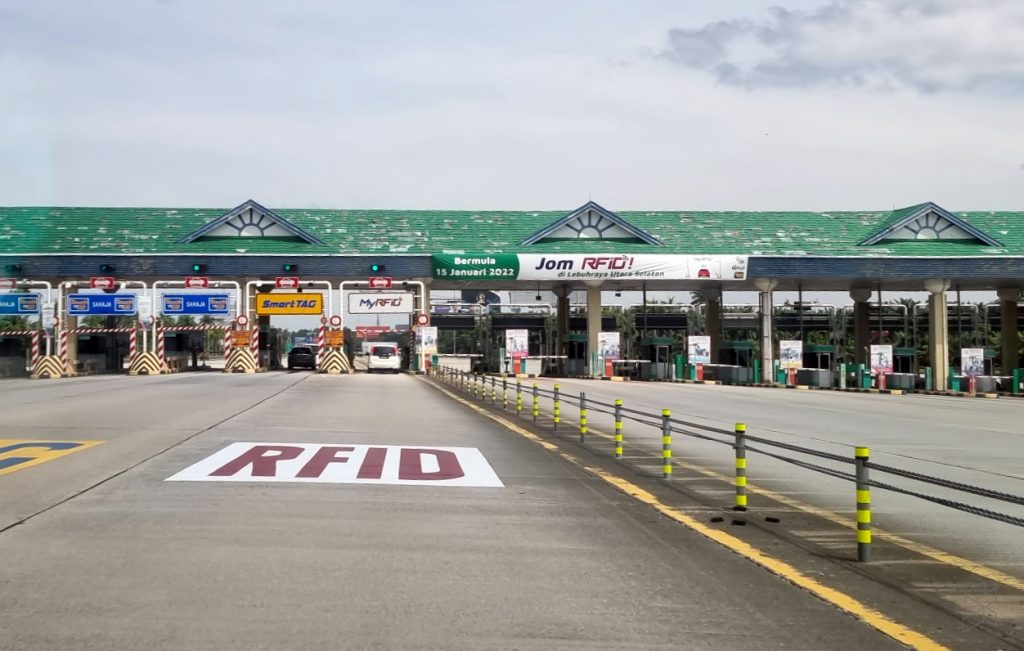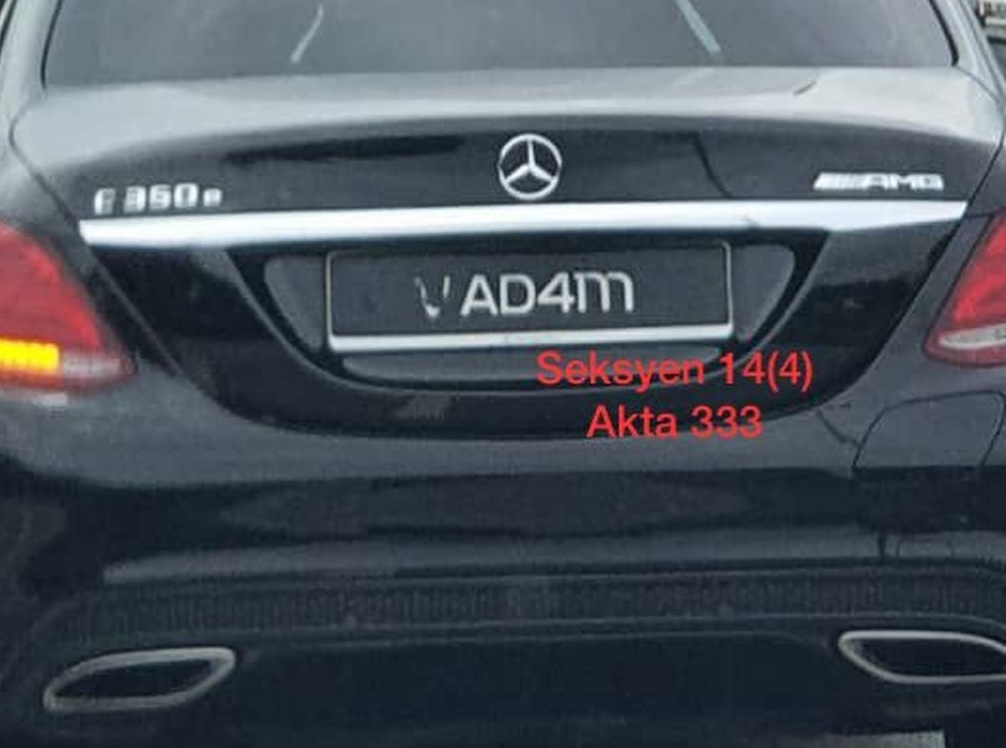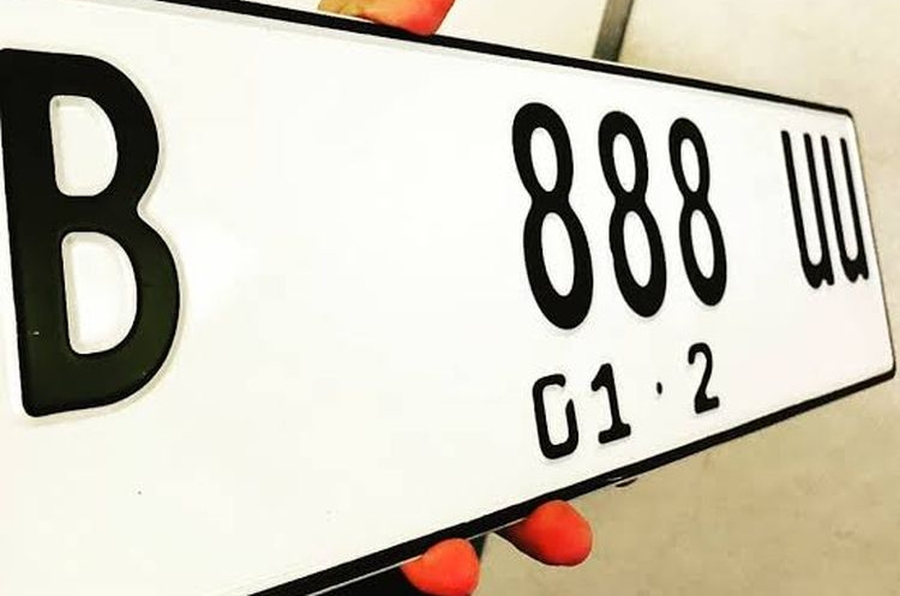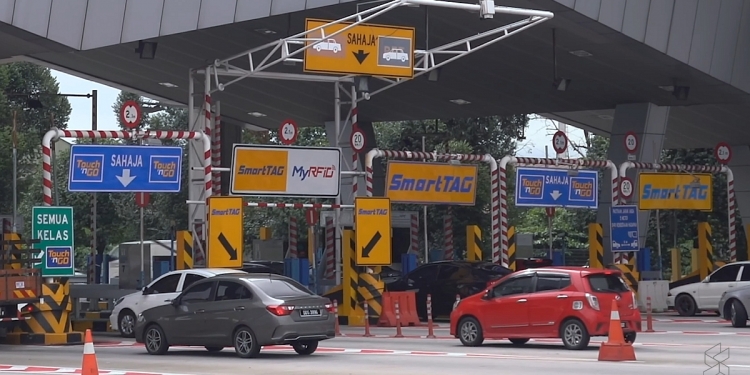Malaysia aims to implement Multi-Lane Free Flow (MLFF) on all toll highways by 2025 which will eliminate the need to slow down at toll plazas to pay for tolls. This will be implemented via Radio Frequency Identification (RFID) and Automated Number Plate Recognition (ANPR). The biggest hurdle of implementing MLFF is the legal framework particularly enforcement against drivers who evade tolls. Works Minister Fadillah Yusof said a new penal code and proposed amendments to relevant laws including the Road Transport Act 1987 will be finalised soon to address the toll evasion concerns.
Fadillah told Free Malaysia Today (FMT) that his ministry is proposing a new criminal law against toll evaders as part of the measures for the MLFF implementation in the next 24 months. He said, “This is to avoid leakages as we are looking into the provision of the law that includes a penal code and whether toll evasion can be considered a criminal offence since there is no lane barrier under MLFF.”
He added, “To have an effective vehicle tracking and driver’s record system, you have to connect with the Road Transport Department (JPJ) database. The relevant law needs to be looked at. There may be a need for a (new) special law, or maybe, the current law needs to be amended.”
However, the amendment to the law requires the involvement of not just one ministry but several other related ministries and agencies.

While the Malaysian Highway Authority had a complex undertaking in the past five years to execute the plan for MLFF with RFID, the biggest hurdle was to resolve the legal aspects. These were also the same concerns raised by PLUS as they have emphasised the need to have a clear legal framework to enforce fraud and bad payments. On 15th January 2022, all toll highways on the west coast of Peninsular Malaysia have deployed RFID with at least one dedicated lane at each toll plazas, making it the biggest RFID rollout yet.
At the moment, the RFID lanes are still equipped with a barrier that requires drivers to slow down to 30km/h. The next step is to implement Single-Lane Free Flow (SLFF) where the barrier at RFID lanes will be removed, but this is only possible if highway concessionaires are assured that they can collect back toll payments effectively from non-RFID users to prevent leakage.
According to FMT, toll dodgers currently can be charged under Section 8 of the Federal Roads (Private Management) Act 1984 which carries a fine between RM2,000 to RM5,000 upon conviction. However, highway concessionaires of 31 highways and expressways have called for the government to enhance the legal framework and for an effective mechanism of recovering unpaid tolls before rolling out MLFF.
In Australia, they do not have barriers for tolled highways and they are also using RFID for its MLFF implementation. Vehicles without RFID will be charged via the ANPR system which they have to settle within a grace period. The outstanding charges can be paid online or at their nearest participating kiosks and petrol station. Additional fines will be imposed if the toll charges are not settled by the due date. After a prolonged period of time, legal action can be taken against the owner to recover the debt.

Currently PLUS has implemented ANPR which uses high-resolution cameras to capture vehicle number plates for secondary verification. In theory, this will allow the highway concessionaire to identify vehicles and bill non-RFID users accordingly. However, the biggest challenge is the use of fancy number plates which can be difficult to recognise not just computers but also humans.
Fadillah told FMT that the accuracy of vehicle owner registration stored in the RFID stickers and system integration with JPJ would play a vital role. He said this will depend a lot on the ANPR and the link to the JPJ system. Besides paying toll, RFID is also used for vehicle tracking and law enforcement, and each tag should be attached securely to the vehicle. At the moment, there are creative Malaysians who are using the RFID tags with their hands or with an RFID tag holder that can be purchased via Shopee, which may hamper the implementation.

Transport Minister Dr Wee Ka Siong recently said that JPJ is exploring the use of RFID as part of its digitalisation plan and it could lower the cost of RFID adoption as it will work for other use cases including toll payments. Although it isn’t mentioned, this implementation may come in the form of RFID-embedded number plates or road tax. In Indonesia, they have started rolling out RFID-integrated number plates with black text over white background for better ANPR performance.
[ SOURCE ]







